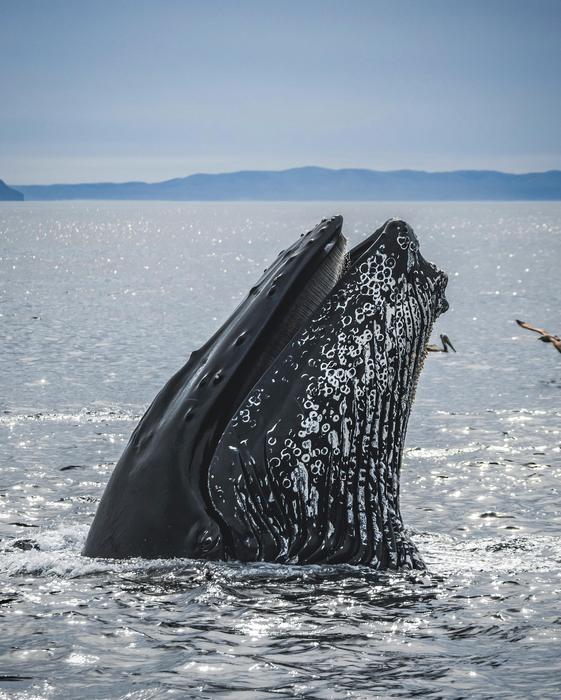A new study led by Griffith University predicts that future climate change impacts could disrupt the krill-heavy diet that humpback whales in the southern hemisphere consume.

Credit: Adam Ernster
A new study led by Griffith University predicts that future climate change impacts could disrupt the krill-heavy diet that humpback whales in the southern hemisphere consume.
Dr Jasmin Groß, who conducted the study as a PhD candidate at Griffith’s Centre for Planetary Health and Food Security analysed fatty acids and stable isotopes from blubber and skin samples of five different humpback whale populations around the southern hemisphere.
These levels were then compared to those of their primary prey item, Antarctic krill.
The team found that although there were distinct differences in the biochemical profiles, the diet of all tested humpback whale populations was Antarctic krill, which provides a high fat content diet ideal for the migratory lifestyle of these populations, Dr Groß said.
“The migratory lifestyle of humpback whales requires predictable ecosystem productivity, and so, we can expect that populations feeding in areas that are subject to the strongest climate change impacts are more likely to show the first signs of a departure from their high-fidelity krill diet,” she said.
“At present, there is no evidence of a divergence from a high-fidelity krill diet, but the characteristic isotopic signal we discovered of whales feeding in productive upwelling areas or in the marginal sea-ice zone, implies that future reductions in sea-ice extent and duration, and rising ocean temperatures could impact their feeding ecology.”
Humpback whale blubber and skin biopsies were collected in August and September 2019 in or near their respective breeding grounds off Brazil, Western and Eastern Australia, New Caledonia and Colombia.
Krill samples were collected from feeding grounds onboard three different vessels between January and March 2019.
Dr Groß said the importance of this study in confirming that each population followed a high-fidelity Antarctic krill diet could be used as baseline knowledge to assess the extent of climate change impacts in the feeding grounds in future studies.
Dr. Groß’s PhD research was conducted as part of the Humpback Whale Sentinel Programme, a key surveillance initiative of the Antarctic Monitoring and Assessment Programme (AnMAP).
AnMAP is a joint initiative between the Scientific Committee for Antarctic Research (SCAR), the Arctic Monitoring and Assessment Programme (AMAP), United Nations Educational, Scientific and Cultural Organization (UNESCO), and Griffith University.
The study ‘No distinct local cuisines among humpback whales: A population diet comparison in the Southern Hemisphere’ has been published in Science of the Total Environment.
Journal
Science of The Total Environment
Article Publication Date
4-May-2024



